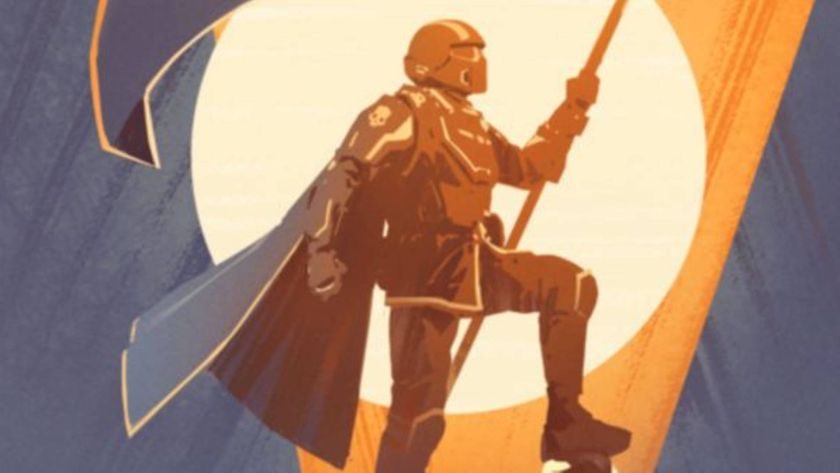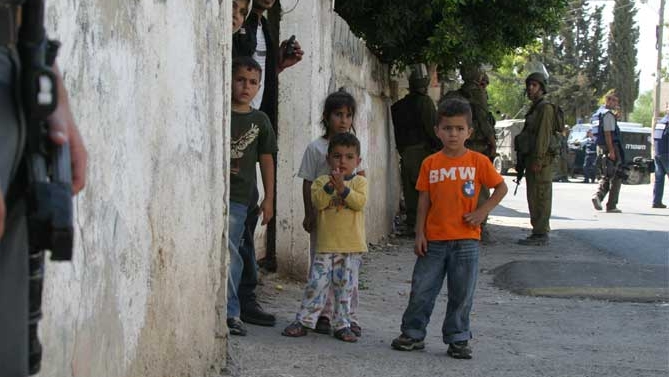Why you can trust 12DOVE
In 2005 the people of the Palestinian village of Bil’in, in the Occupied Territories, learned that the Israeli government’s Separation Wall would run close to their village, depriving them of much of their cultivated land - land which would then be taken over by Jewish settlers.
They resolved to protest by every non-violent means possible - and one of them, Emad Burnat, decided to document the protests with his newly acquired camera.
Over the next five years Burnat doggedly carries out his plan - despite being beaten up, wounded, jailed and having one camera after another smashed by soldiers. “I film,” he tells us, “to hold on to my life.”
The story unfolds in parallel with the growing up of his youngest son, Gibreel, born just as the protests start, and we often watch events through the boy’s wondering eyes. Almost his first words are “the wall”, “cartridge”, and “army”.
In collaboration with Jewish Israeli filmmaker Guy Davidi, Burnat’s footage has been edited into an uncommonly powerful story of defiance against all the odds.
The sights captured are sobering, shocking. We see ancient olive trees being set alight or ripped from the ground by mechanical diggers, settlers beating up the protesters, Israeli soldiers firing hundreds of tear-gas grenades - and sometimes bullets too.
One of Burnat’s cameras takes a direct hit, saving his life - and augmenting the movie’s immersive authenticity further still.
Emad’s friends Adeeb and Bassem are prominent in every protest.
Adeeb is fiery, indignant, haranguing the impassive troops. Bassem, a gentle giant who the local kids nickname ‘Phil’, the Arabic word for elephant, is ceaselessly optimistic. Yet it’s Phil who falls victim to a horrifying turn of events, his fate marked by a particular cruel irony.
Despite the palpable sense of despair running through the film, it does end on a note of victory - a small one in the overall scheme of things, true, but the relief is testament to the film’s intense emotional pull.

Ex Nintendo PR managers say the Switch 2 generation is likely to see the retirement of "several of the major developers at Nintendo who we have known for 40 something years"

Helldivers 2 CEO says industry layoffs have seen "very little accountability" from executives who "let go of one third of the company because you made stupid decisions"

Spider-Man: Brand New Day - How Peter Parker and Mary Jane's break up led to one of the wall-crawler's most transformative comic eras












